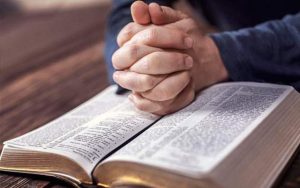- About GTCC
- News
- Admissions
- Academics
- Campus Life
- International
- Menu

The doctoral degree is the sign of accredited membership in the scholarly community of the theological academy. Its attainment represents the judgment of the faculty, as representatives of that academy, that the recipient is qualified to perform the essential functions and duties of a professional theologian.
With the consultation of an advisor, students will take responsibility for planning a curriculum of study that is both broad and specialized. Coursework at the doctoral level, even outside of seminars, demands a more active role on the part of the student: rather than simply absorbing information, the student is expected to contribute to the encounter with texts and ideas, to design projects, and to pursue independent study.
In addition to the specific requirements within the field of study, students must complete a zero credit course, Teaching Theology, before they are permitted to teach courses for the department. The department will offer this course at least once every four semesters.
In the course of doctoral studies, all students will be called upon to demonstrate reading proficiency in two modern languages and will be expected to use these linguistic skills in reading for classes and papers. Unless otherwise specified, the two required modern languages are English and Korean. For some students, a similar knowledge of ancient languages will need to be demonstrated. (Check your proposed Field of Study for more information about language requirements.)
The student is required to choose two general areas of research within his or her primary field of study and one area in a related field of study, which will constitute the minor exam. The fourth exam will be more narrowly focused and should reflect the student’s intended subfield of dissertation research. Ordinarily, a student will take the exams during the sixth semester.
A doctoral dissertation is the literary exposition of a thesis. The thesis is the theological proposition for which one marshals evidence and arguments. Although scholarship may be focused in different ways in the various field specializations, every thesis will include some degree of research, at least into the state of a question; and every thesis will include some degree of argument and judgment, at least regarding the theological relevance of one’s data. The dissertation must be methodologically self-conscious. It must justify its method and structure and continually demonstrate their presence.
Upon entering the Ph.D. program, a student will be assigned an advisor working in the student’s intended Field of Study. This advisor will assist in the selection of courses, monitor the progress of language acquisition, and fill all additional roles necessary for good progress. By the conclusion of the first year of coursework, students may choose another member of the department to fulfill this role. Students certainly may, but are not required to, ask their advisor to serve as the mentor for the dissertation.
Some students, through graduate assistant ships and/or teaching mentor ships, will have the opportunity to work closely with individual members of the faculty in some of the everyday tasks of the academy. All students are invited not only to seek advice on their studies, but even more to get to know additional faculty members on a personal and informal basis and to engage with them in theological discussion.